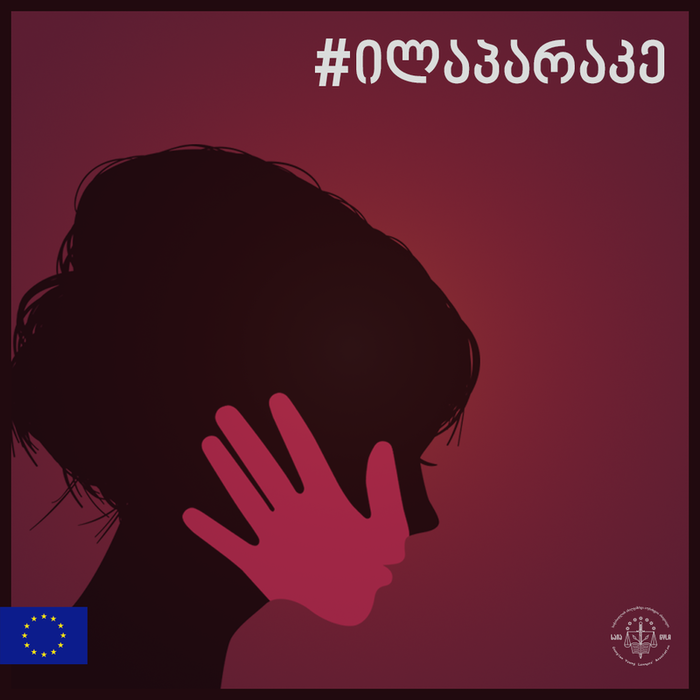NEWS

With the view to combating gender violence, in recent years, significant steps have been taken for the improvement of legislation and practice in Georgia. Despite this, the progress has not reached sexual violence so far. Sexual abuse still remains one of the hardest, concealed and unpunished forms of gender violence. The applicable legislation and practices do not provide effective, victim-oriented and gender-sensitive legal mechanisms against sexual violence, and justice remains unattainable for women survivors of violence.
According to the National Study on Violence against Women (2017), approximately 17,000 (2.3%) women fall victims of sexual abuse by a spouse / partner in Georgia. About 20,000 (2.7%) women have experienced sexual abuse from other persons. 67,000 (9%) girls became the victim of sexual abuse in their childhood. However, according to the data provided by the Supreme Court of Georgia, only 13 persons were punished for rape in 2016 (Article 137 of the Criminal Code of Georgia), 5 persons - in 2017, and only 8 persons- in 2018. The figures serve as the vivid illustration of the total impunity of sexual violence.
After the ratification of the Istanbul Convention, in 2017, the Criminal Code of Georgia was amended in terms of sexual offences. Despite this, the law does not still meet the Convention (Article 36) and the international human rights standards, according to which the definition of sexual violence shall cover all forms of sexual acts committed without the victim’s voluntary consent and a wide range of coercive circumstances suppressing the victim’s will, and the violence must be regarded as an aggravating circumstance.
Sexual violence is still associated with stigma and women rarely report to law enforcement agencies thereof, and reported offences are not recorded and investigated based on a gender-sensitive methodology and approaches. For the initiation of a criminal prosecution against sexual abuse, an inadequately large amount of evidence is required, which ultimately results in impunity for perpetrators of sexual violence. [[1]]
Problematic is also the investigation of sexual abuse against the girl who has not attained the age of 16, because the offence is often qualified as a consensual act. This further stigmatizes the child and sticks the label of the offence "instigator" on the child in the eye of the public, rather than of the victim of violence. Sexual violence against a spouse / sexual partner, sex worker, disabled woman rarely ends up in reference to police or persecution of the perpetrator.[[2]]
In addition, according to the Istanbul Convention, the State shall take all necessary legislative or other measures to ensure that performing an abortion on a woman without her prior and informed consent shall be considered as a criminal act (Article 39). Until now, no relevant amendments have been introduced to the Criminal Code to effectively fight against forced abortion.
For the prevention of sexual violence and impunity, the following important steps should be taken:
- The Ministry of Interior Affairs and the Prosecutor's Office should ensure proper records of all cases of sexual violence, qualify crimes according to their gravity, carry out investigations based on the gender-sensitive methodology (including in terms of minor girls and vulnerable groups) and revise the requirement of necessary amount of evidence for the initiation of a criminal persecution;
- The Court should take into consideration the peculiarities of sexual violence crimes in order to assess the sufficiency of evidence for rendering a judgment in order to prevent being influenced by damaging gender stereotypes in the decision-making process;
- The Parliament of Georgia should introduce a relevant legislative amendment into the definition of sexual violence so that it is in full compliance with the requirements of the Istanbul Convention and the international standards of human rights;
- The State should provide relevant support (including psychological and social) for women survivors of sexual violence to ensure the restoration of violated rights of the victims by punishing the offender.
[1] See Roadblocks To Justice: How The Law Is Failing Survivors Of Sexual Violence In Eurasia, Equality Now, 2019: https://d3n8a8pro7vhmx.cloudfront.net/equalitynow/pages/1581/attachments/original/1547485403/EN-Eurasia_Rpt_ENG_-_Web.pdf?1547485403
[2] See the above.
SHARE: